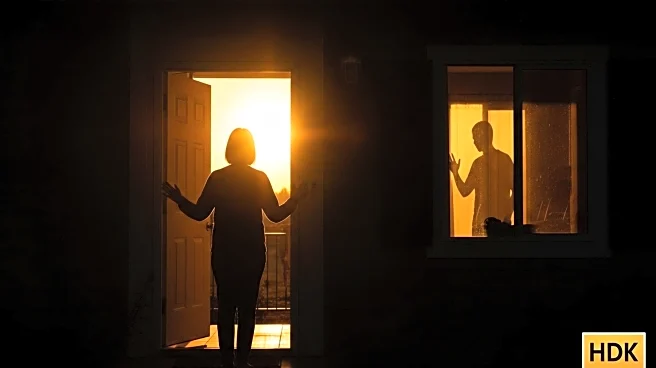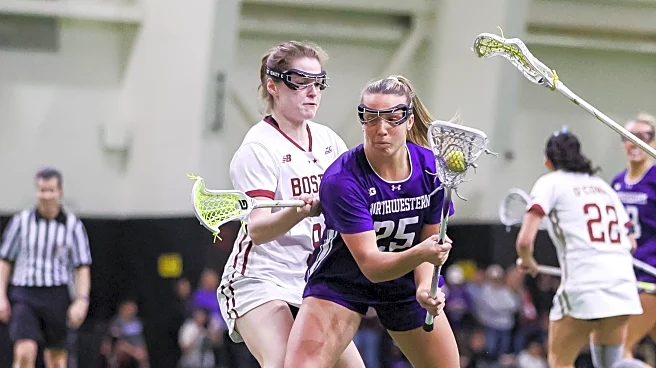What is the story about?
What's Happening?
Nimrod Cohen, an Israeli hostage held in Gaza for over two years, has been released and reunited with his family. The emotional reunion took place in Jaffa, Israel, where relatives celebrated his return following a U.S.-brokered deal to end the Gaza war. Cohen's release is part of a broader agreement that saw the liberation of 20 hostages, highlighting efforts to resolve the conflict and promote peace. The reunion underscores the personal impact of diplomatic initiatives, as families experience relief and joy after prolonged uncertainty.
Why It's Important?
The release of Nimrod Cohen and other hostages signifies a major diplomatic achievement, potentially influencing regional stability and international relations. The U.S.-brokered deal may lead to improved relations between Israel and Gaza, fostering economic and social development. It also highlights the role of diplomacy in resolving conflicts and promoting peace, potentially impacting future negotiations and peace efforts. The emotional reunion reflects the human aspect of diplomatic initiatives, emphasizing the importance of collaboration and mutual understanding.
What's Next?
Following the release, stakeholders may focus on implementing the agreement's terms, ensuring compliance and fostering cooperation. The U.S. may continue to play a role in monitoring and supporting the peace process, potentially leading to further diplomatic engagements. Regional leaders may explore opportunities for collaboration and development, aiming to build a sustainable and peaceful future.
Beyond the Headlines
The release raises questions about the long-term implications for regional stability and international relations, as stakeholders navigate complex geopolitical dynamics. It also reflects cultural aspects of diplomacy, where collaboration and mutual understanding are prioritized over conflict.















